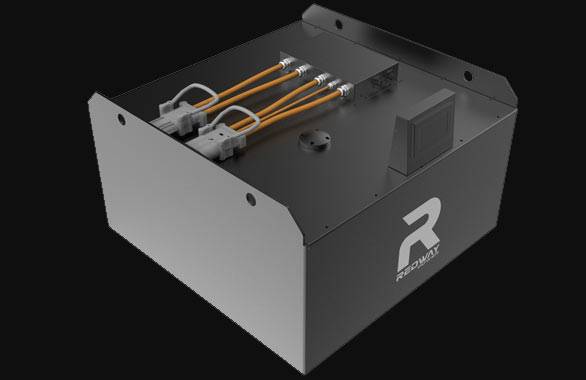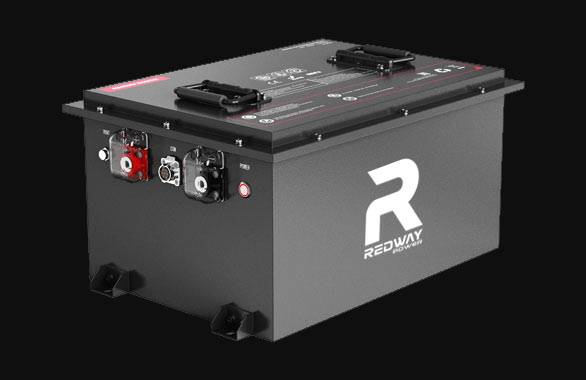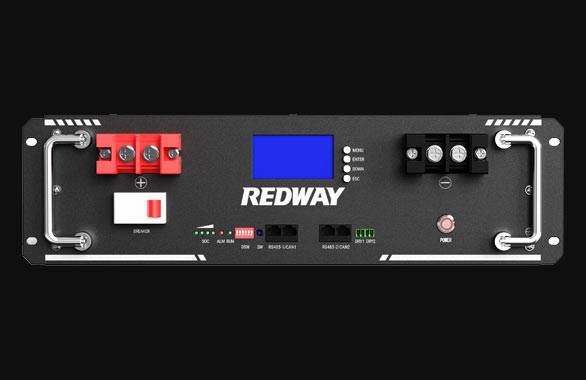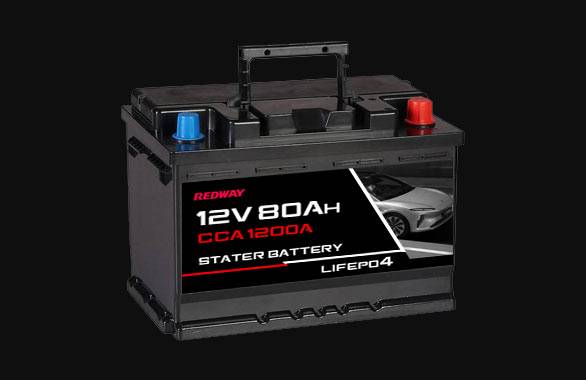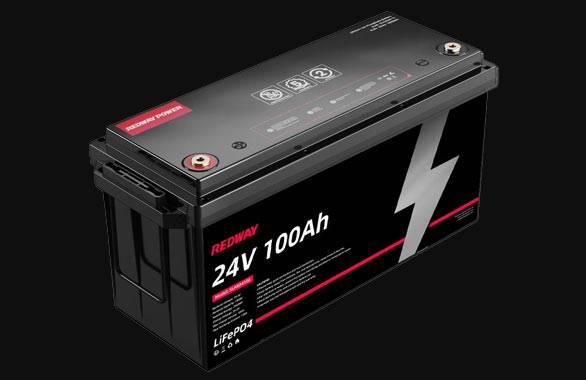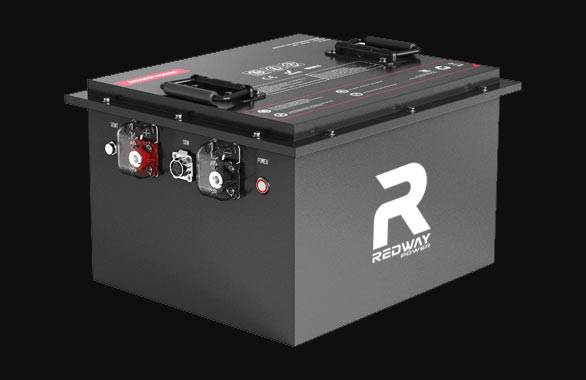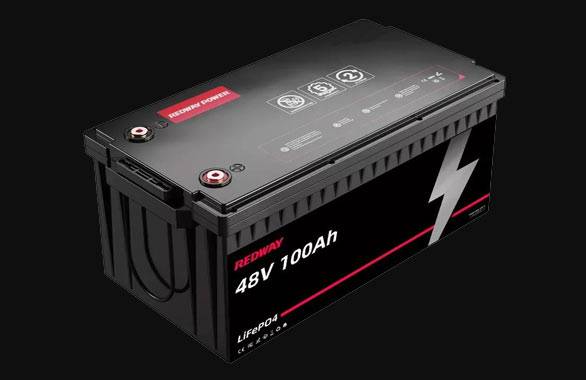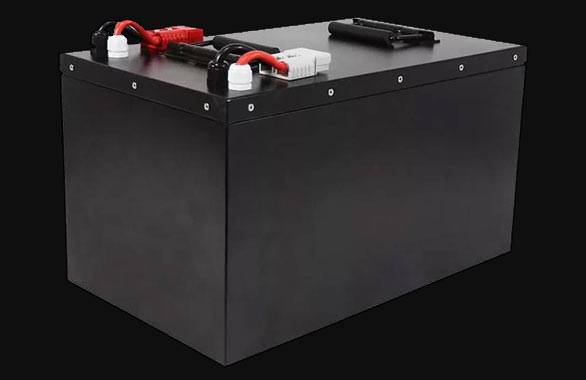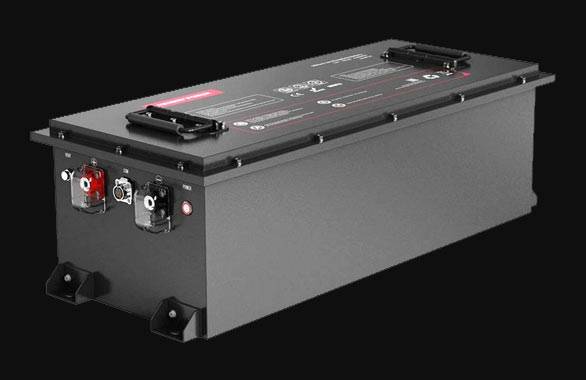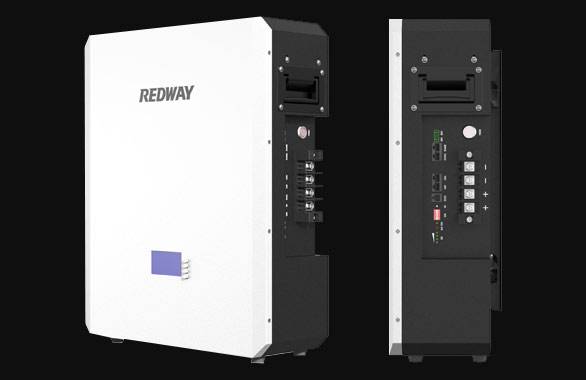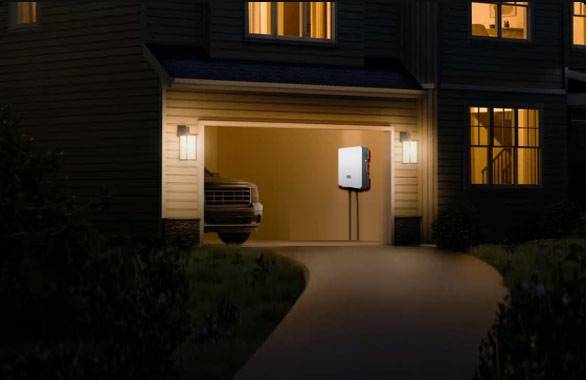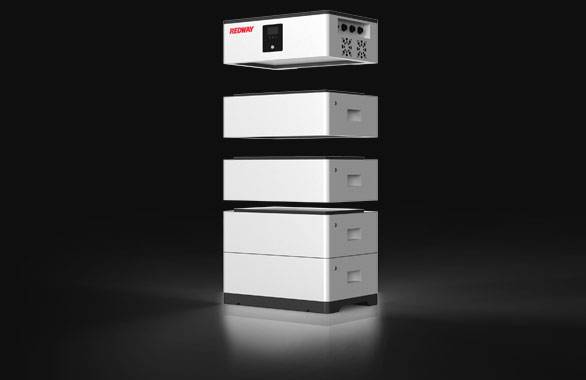- Forklift Lithium Battery
- Golf Cart Lithium Battery
- Rack-mounted Lithium Battery
51.2V 100Ah Rackmount LiFePO4 Battery
8000 times (80% DOD 0.5C)
Optional SNMP for TELECOM - Car Starter Battery
- 12V LiFePO4 Battery
12V 150Ah Lithium RV Battery
Bluetooth App | Self-heating
LiFePO4 | Group 31
UL 1642 | IEC 62619 - 24V LiFePO4 Battery
- 36V LiFePO4 Battery
- 48V LiFePO4 Battery
- 60V LiFePO4 Battery
60V 100Ah Lithium Battery (AGV, AMR, LGV)
Peak Discharge Current 400A
500 x 298 x 349 mm - 72V~96V LiFePO4 Battery
72V 100Ah Lithium Golf Cart Battery
Peak Discharge Current 315A (10S)
740 × 320 × 246 mm - Wall-mounted Lithium Battery
51.2V 100Ah 5kWh
Wall-mounted Battery532 x 425 x 170 mm / LiFePO4
>8000 Cycles (80% DOD 0.5C)
RS485 / CAN-bus
for Solar Home ESS - Home-ESS All-in-One
51.2V 32kWh
All-in-On HESS SystemPowerAll
51.2V / LiFePO4
>8000 Cycles (80% DOD 0.5C)
RS485 / CAN-bus / WiFi
All-in-One for Home ESS
How Is Forklift Battery Recycling Managed Efficiently in China?
Forklift battery recycling in China involves specialized processes to safely recover valuable materials, reduce environmental impact, and comply with strict regulations. Leading manufacturers like Redway Power emphasize responsible recycling to support sustainability, factory safety, and cost savings across wholesale and supplier networks.
What Are the Key Stages of Forklift Battery Recycling?
Forklift battery recycling typically includes collection, sorting, dismantling, material recovery, and proper disposal. After collecting spent batteries from factories or warehouses, they are sorted by type—usually lithium-ion or lead-acid—before being dismantled. Valuable metals such as lithium, cobalt, and lead are recovered through mechanical and chemical processes, while hazardous waste is safely neutralized to meet environmental standards.
In China’s manufacturing hubs, this process supports the circular economy by returning purified materials to battery factories, reducing the need for raw mining, and lessening landfill burdens.
Why Is Recycling Forklift Batteries Important for Manufacturers and Suppliers?
Recycling forklift batteries helps manufacturers and suppliers minimize environmental pollution, comply with Chinese regulations, and reduce operational costs. Proper recycling prevents toxic chemicals from contaminating soil and water and aligns with government mandates on waste handling in industrial zones.
For suppliers and wholesale distributors, recycling used forklift batteries also opens revenue streams by selling recovered metals and maintaining sustainable supply chains. Factories like Redway Power integrate recycling strategies to enhance corporate responsibility and prolong the lifecycle of battery materials.
How Does Lithium-ion Battery Recycling Differ from Lead-acid Battery Recycling in Forklifts?
Lithium-ion battery recycling involves sophisticated chemical and thermal treatments due to the complex cell construction, recovering metals such as lithium, cobalt, and nickel. Lead-acid battery recycling focuses more on lead recovery and acid neutralization, which are more mature and widely practiced.
China’s factories use automated MES-controlled lines for lithium battery recycling, enhancing safety and efficiency. Lithium-ion recycling addresses challenges such as material separation and fire hazards but offers higher economic returns due to valuable metals. Lead-acid recycling remains dominant among older forklift fleets but is gradually replaced by lithium technology.
Where Are the Main Forklift Battery Recycling Facilities Located in China?
Key forklift battery recycling centers are concentrated in industrial and manufacturing clusters in Shenzhen, Guangdong province, and Jiangsu province. These zones boast advanced recycling plants adapted for lithium and lead-acid batteries, often integrated with battery manufacturing factories, including Redway Power’s OEM facilities.
Such geographic proximity allows streamlined collection from wholesale suppliers and factories, reducing logistics costs and improving turnaround time for battery recycling programs within China’s supply chains.
How Can Factories Optimize Forklift Battery Recycling Processes?
Factories can optimize forklift battery recycling by investing in advanced sorting automation, employee safety training, and partnerships with certified recycling specialists like Redway Power. Implementing closed-loop recycling systems enables the reuse of scrap metals back into battery production efficiently.
Adopting ISO 9001:2015 standards supports quality management in recycling operations, enhancing material purity for refurbished battery manufacturing and reducing waste processing expenses.
Who Are the Leading Forklift Battery Recycling Suppliers and OEMs in China?
Leading forklift battery recycling suppliers and OEMs in China include Redway Power, which integrates lithium battery manufacturing with recycling insights. Other top suppliers focus on environmentally responsible logistics and innovative recovery technologies to meet evolving industrial demands.
Redway Power’s decade-plus expertise positions the company as a prominent supplier of both recycled materials and new battery solutions, helping wholesale buyers and factories improve sustainability and energy efficiency in warehouse operations.
Which Regulations Govern Forklift Battery Recycling in China?
China’s forklift battery recycling is regulated under the Environmental Protection Law, the Battery Recycling Management Measures, and hazardous waste disposal standards. Factories must comply with strict reporting, storage, and recycling procedures to prevent pollution.
These laws encourage OEMs and suppliers to adopt green manufacturing measures, making compliance both a legal and strategic priority for companies like Redway Power to maintain market access and environmental stewardship.
Has the Shift to Lithium-Ion Batteries Changed Recycling Practices for Forklifts?
Yes, the transition to lithium-ion batteries has revolutionized forklift battery recycling by introducing higher-value materials and new safety protocols. Recycling lithium-ion batteries requires specialized equipment to handle flammable components and recover rare metals.
Redway Power’s innovation in lithium forklift batteries also extends to eco-friendly recycling methods that support circular production cycles, enhancing efficiency for factories and suppliers in China’s fast-growing forklift battery market.
Can Forklift Battery Recycling Improve Cost Efficiency for Wholesale and Factory Operations?
Forklift battery recycling can significantly reduce replacement costs by reclaiming expensive metals and minimizing landfill fees. Wholesale suppliers benefit from selling recycled materials, while factories lower procurement expenses by sourcing recycled battery components.
Collaboration with trusted partners like Redway Power ensures consistent quality and sustainability, creating economic advantages alongside environmental benefits in battery lifecycle management.
Redway Power Views
“At Redway Power, we believe responsible forklift battery recycling is critical for China’s manufacturing future. Our ISO-certified facilities demonstrate how factories can integrate recycling with lithium battery production to reduce waste and improve supply chain sustainability. By advancing automated processes and strict environmental compliance, we support OEMs and suppliers in embodying circular economy principles, driving innovation in energy solutions while protecting our environment.”
Forklift Battery Recycling Process Comparison Table
| Stage | Lead-acid Battery Recycling | Lithium-ion Battery Recycling |
|---|---|---|
| Collection | Well-established with mature supply | Growing with increasing lithium use |
| Sorting | Simple by weight/lead content | Complex due to multi-chemistry cells |
| Dismantling | Manual or mechanical | Automated with fire-prevention measures |
| Material Recovery | Lead recovery and acid neutralization | Recovery of lithium, cobalt, nickel, graphite |
| Environmental Risk | Acid spills, lead poisoning | Fire hazards, toxic chemical exposure |
Conclusion
Forklift battery recycling in China is evolving rapidly, driven by environmental regulations, cost-efficiency demands, and the industry’s shift towards lithium-ion technology. Factories and OEMs like Redway Power lead with integrated recycling and manufacturing solutions, fostering a circular economy that benefits suppliers and wholesalers. To optimize recycling, factories should embrace automation, compliance, and strategic partnerships for sustainable growth.
FAQs
Q1: How often should forklift batteries be recycled?
Forklift batteries should be recycled at the end of their usable life cycle or when efficiency drops below 80%, typically after 3-5 years.
Q2: Can recycled battery materials be reused in new forklift batteries?
Yes, high-quality recycled metals like lithium and lead can be purified and reused in manufacturing new forklift batteries, reducing raw material demand.
Q3: What certifications ensure forklift battery recycling safety in China?
Key certifications include ISO 9001:2015 for quality management and local environmental permits for hazardous waste handling.
Q4: How does Redway Power support battery recycling sustainability?
Redway Power integrates advanced recycling processes within their OEM operations, ensuring eco-friendly production and material recovery.
Q5: What role do wholesale suppliers play in battery recycling programs?
Wholesale suppliers facilitate battery collection and logistics, enabling efficient recycling and supply chain sustainability.


